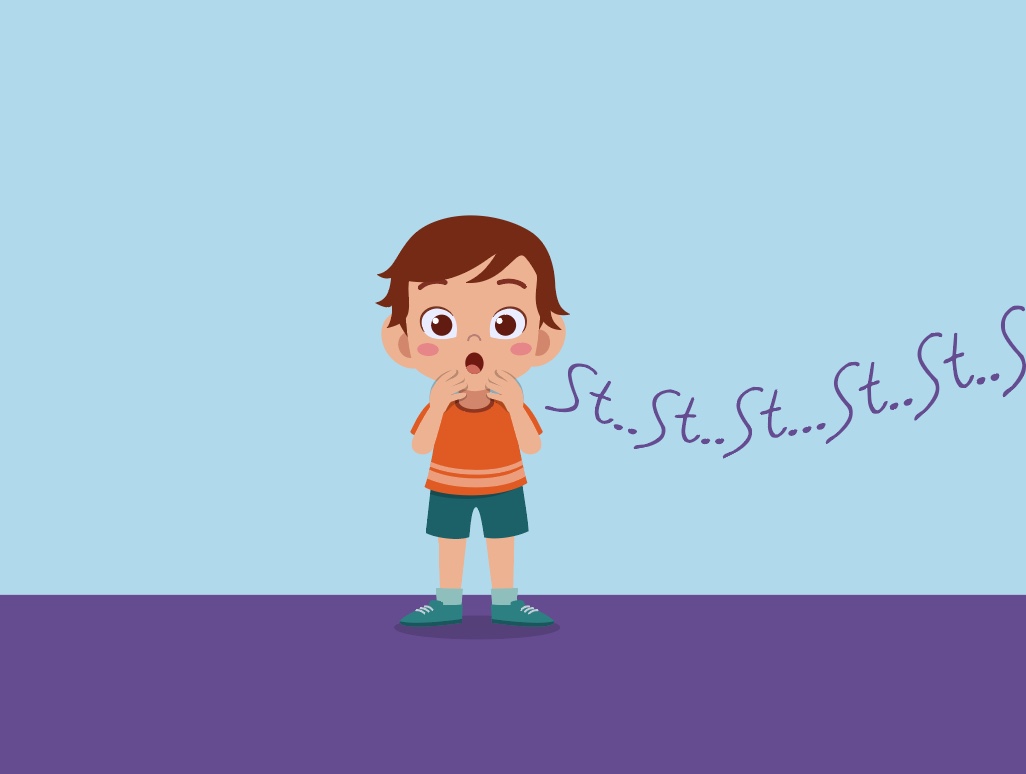By Madison Gwizdalski MS-CCC, SLP
All of us experience moments of disfluency in our speech. Do you remember a time when you felt stuck or stuttered on a word you were trying to say? Children especially experience these moments as they are learning to speak… but when does normal disfluency cross over into a reason for concern? Let’s look at some of the facts about stuttering, and what you should do if you have a child that stutters.
What is stuttering?
Stuttering is a communication disorder in which the flow of speech is broken by repetitions (li-li-like this), prolongations (lllllike this), or abnormal stoppages (no sound) of sounds and syllables. Sometimes it is accompanied by what speech therapists call secondary behaviors, which are unusual facial and body movements associated with the effort to speak.
Why is my child stuttering?
There’s a lot of mystery about what exactly causes stuttering. While we don’t the exact cause, it seems to be that there are many contributing factors – both genetically and environmentally. There is some research that indicates a number of genes that impact language processing could be implicated in stuttering. We can also look at some predictors of persistent stuttering and see that children with family members who stutter are more likely to stutter. But… there are other factors at play, including brain differences, language development, and emotions/temperament (it should be noted that temperament/emotions are not a primary cause of stuttering, but may contribute to increased tension and difficulties).

When should I be concerned?
Remember that stuttering can be a very normal part of development. In fact, approximately 5 percent of all children go through a period of stuttering in early childhood (emerging between 2 and 4 years) that lasts six months or more. Of this 5%, 75% will go on to recover from stuttering by late childhood.
It is recommended that if your child has risk factors for persistent stuttering, if you consider the stuttering to be severe or if the stuttering persists beyond three to six months, seek help from a speech-language pathologist who treats stuttering.
Tips for parents with children who stutter
It can be confusing to know exactly how to talk with your child who stutters. Here are some helpful tips to increase their communication and set them up for success!
- Model a slow, easy speech rate for your child. Pause more between sentences and reduce the rate of your speech to 75% of what it usually is.
- Let your child finish their thoughts, even if they are stuttering through them!
- Try not to react negatively to your child’s stutter. Try your best to remain relaxed and calm with your body language, facial expression, tone of voice and words.
- Set aside time for 1:1 situations with your child, so they have your undivided attention.
- Have a consistent daily schedule, which can help reduce pressure, tension, and therefore, stuttering.
- Reduce the number of questions you ask your child, and increase the amount of comments you make.
Again, don’t hesitate to seek help from a speech-language pathologist who treats stuttering if you have concerns about your child’s stuttering. A qualified professional can provide both you and your child with tools and information to make them a successful communicator!




